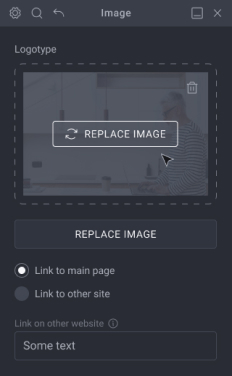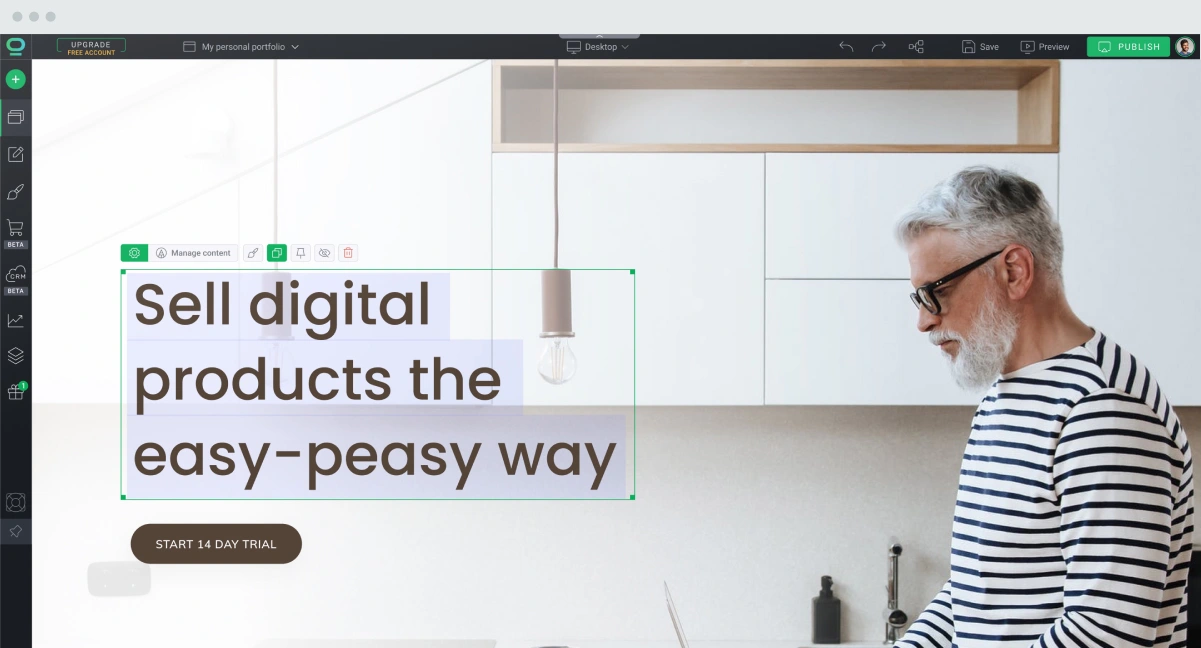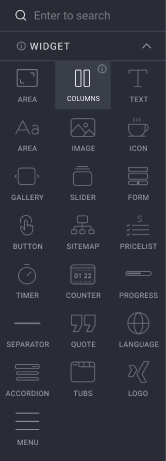Imagine this: You're lounging on your sofa, coffee in hand, swiping through potential dream homes on your tablet. This isn't the future—it's how today's savvy home buyers are actively searching for their next big investment. With advanced apps that filter searches by location and features, and online listings boasting immersive virtual tours, the initial stages of home buying are often conducted from a distance. Most of this preliminary selection happens without ever stepping foot inside an open house or shaking hands with a real estate agent.
One of the top tech tools that have revolutionized the way leads are generated in this sector is social media, accounting for 47% of the highest quality leads. The typical buyer now uses a mobile device to search for properties online, a trend that underscores the growing importance of effective social media marketing for real estate agents.
Let’s dive into the proven real estate social media marketing strategies that will ensure that you are seen and heard in the right circles.
Start Now!
Does social media marketing work for real estate?
With staggering statistics showing that social media has contributed to 47% of the highest quality leads in the industry, it's clear that platforms like Facebook, Instagram, and LinkedIn are more than just networking tools; they are essential sales channels for real estate agents and agencies.
The journey of buying a home today begins online. 44% of potential buyers start their search by looking at properties for sale online, underscoring the shift from traditional browsing methods to digital explorations. For real estate businesses, this means having a robust online presence is no longer optional but critical.
Social media for real estate isn't just popular; it's predominant. About 77% of real estate businesses now utilize social media to connect with clients, showcase properties, and craft their brand's story. It’s a tool that transcends generational divides: 99% of millennials—the largest group of current homebuyers—and 90% of baby boomers begin their property hunt online, largely eschewing the old-school method of in-person referrals.
Moreover, where are buyers finding their homes? A significant 52% report discovering their future homes on the Internet. This data isn't just a suggestion; it's a loud declaration that social media real estate marketing is a potent tool for generating leads and closing sales.
16 essential social media marketing strategies every real estate agent needs
1. Tailor your content to your target audience

Screenshot from TikTok account - tanisha.owens
In the world of real estate, one size does not fit all—especially when it comes to your social media content. If you specialize in selling luxury listings, your approach should differ markedly from agents who target retirees looking for a peaceful community. Understanding who your audience is—be it home buyers, high-end investors, or first-time homebuyers—is crucial in shaping your content strategy.
For luxury properties, your content might include high-quality images and videos, virtual tours of estates, and posts that highlight the exclusivity and unique features of the properties. The language should be sophisticated and the details precise, emphasizing the lifestyle and amenities that align with the expectations of affluent buyers.
Conversely, if your target audience includes older individuals looking for a retirement sanctuary, focus on community features, accessibility, and comfort. Your posts could highlight tranquil neighborhood walks, proximity to medical facilities, and community events, which are significant factors for this demographic.
Are you wondering how to spot your audience? Begin by creating buyer personas for your typical and ideal customers. Are they young professionals eager for their first home in a bustling city? Or are they seasoned investors searching for lucrative opportunities? Perhaps they are families needing larger spaces with proximity to good schools? Once you have defined your personas, it will be much easier for you to choose your communication style and the type of content to be published on your real estate social networks.
2. Highlight your contact information prominently

Screenshot from Instagram account - brittany.realestatebyarrow
The easier you make it for potential clients to reach you, the higher your chances of converting social media interactions into real leads. Each piece of content should be viewed as an opportunity to invite your audience into a conversation. By making your contact information prominent and readily available, you significantly increase the likelihood of turning a viewer into a client.
For static posts, consider incorporating your contact info within the image itself, perhaps in a stylish footer that aligns with your brand’s aesthetic. For video content, including reels or live broadcasts on platforms like Instagram and Facebook, make sure to verbally mention your contact details and include them in the video description or as a pinned comment.
Many social media for real estate agents offer features like call-to-action buttons—use them. On Facebook, set up a “Contact Us” or “Call Now” button that leads directly to a messaging app or dialer. Instagram business profiles allow you to include email, call, and direction buttons directly on your profile.
3. Integrate a digital business card in your profile
Real estate digital business card by BOWWE
In the real estate market, standing out is about more than just the properties you list—it's about how you present yourself. Integrating a virtual online business card into your social media profile offers a modern twist to traditional networking, enhancing your professional image and making you memorable. Most platforms allow you to add a link in your bio; here, you can insert the URL to your digital business card.
Don’t think about a digital business card as just another piece of digital clutter; it’s an interactive tool that remains in the customer's browser—and memory—long after the first interaction. It encapsulates your professional identity in a sleek, clickable format, making it a potent tool for real estate agents looking to make a lasting impression.
Each share of your digital business card can lead to new client interactions and more eyes on your real estate listings. It serves as a dynamic billboard for your services. By simplifying the way potential clients reach and remember you, a digital business card can significantly boost your lead generation efforts.
BOWWE's modern digital business cards include features like direct meeting scheduling or click-to-call functionality, making it easier for clients to reach out and connect with you. You can quickly create beautiful and professional digital business card in BOWWE Builder without code at any time!



Create Your Business Card Now!
4. Develop landing pages to boost lead conversion
In real estate social media marketing, directing your audience to a targeted landing page can significantly enhance the effectiveness of your campaigns. Whether you're promoting a single property or a range of luxury listings, dedicated landing pages serve as powerful tools for converting interest into actionable leads.
When promoting a single property on your social media channels, consider directing potential buyers to a landing page dedicated solely to that property. This not only provides detailed information and rich media showcasing the property but also minimizes distractions, guiding your prospects straight to a call to action such as scheduling a viewing or making an inquiry.
For luxury listings or off-market properties, you can elevate the sense of exclusivity by creating landing pages that require unique access codes. This strategy not only enhances the perceived value of the property but also helps in filtering and capturing high-intent buyers who are serious about their interest.
Creating an effective landing page doesn’t have to be a daunting task involving complex coding. Platforms like BOWWE allow you to quickly design professional landing pages that are optimized for real estate needs. These tools enable you to integrate images, videos and detailed property information, all without needing to write a single line of code.
5. Optimize your Bio and About sections for engagement
Screenshot from Instagram account - utahrealestatepaige
These sections are crucial for making a strong first impression and can be strategically optimized for better search visibility and engagement.
Just like traditional SEO practices that optimize content for search engines like Google, social media SEO involves optimizing your social media profiles to make them more discoverable by potential clients. This includes carefully selecting keywords that potential clients might use to find services like yours. Identify keywords that are most relevant to your services in real estate, such as "luxury real estate specialist," "homes for sale," "commercial real estate agent," or more specific terms related to your local market or specialty.
Remember also that social media bios and sections have character limits, so it’s important to be clear and concise. Quickly inform visitors who you are, what you do, how you can help them and encourage potential clients to take action. This could be a prompt to visit your website, view listings, or contact you directly.
6. Engage with your audience through interactive content
Maybe you know the programme like "Escape to the Country" where people are searching for a home in the countryside at the end of every home tour they need to guess its price? You can play similar games with your audience. For instance, you can showcase homes and ask your audience to guess their prices. This not only makes the viewing experience more engaging but also educates your audience about property values and market trends.
Interactive polls and Q&A sessions are excellent tools for engagement. Pose questions like "Which home style do you prefer: Modern or Colonial?" to let your followers choose between different home styles. Such polls not only engage but also provide you with insights into the preferences of your audience, which can guide your future listings.
7. Share insights from your life as a real estate agent
Screenshot from YouTube account - Ryan Serhant
While professional content is essential for generating leads and promoting your services, sprinkling your real estate social media feed with personal stories can enrich your audience's experience.
Share stories from your daily life as a real estate agent. This could include behind-the-scenes content from open houses, your experiences navigating the challenges of the market, or stories of how you helped clients find their dream home.
Transparency about your successes and the challenges you face can significantly enhance trust. Clients feel more confident working with agents who are honest about what goes into securing a sale or purchase. Discussing the realities of the market, including both wins and obstacles, shows that you value integrity and openness.
8. Utilize multiple social media platforms
Each social media platform has its own user demographics, norms, and algorithms. What works on Facebook might not work on Instagram or TikTok. By spreading your presence across multiple platforms, you mitigate the risk of algorithm changes or platform-specific issues like shadowbans that could disrupt your reach.
Embracing a multi-platform strategy doesn’t necessarily mean doubling your workload. Content created for one platform can often be repurposed to fit another. For example, a video posted on TikTok can be edited slightly and shared on Instagram Reels, then extended into a longer format for YouTube. This approach not only saves time but also ensures consistency across your channels.
Notice also that different platforms cater to different demographics. LinkedIn is ideal for reaching professionals and higher-income individuals who may be interested in luxury properties or investment opportunities. Instagram and Pinterest are great for showcasing high-quality images of listings, appealing to younger demographics and first-time homebuyers. By targeting specific platforms, you can tailor your content and interactions to effectively reach and engage these diverse groups.
9. Actively promote your listings
Screenshot from Instagram account - pawel_rozek_agentnieruchomosci
Creative promotion of your real estate listings is crucial to catching the eye of potential buyers and generating interest and shares across your social networks.
Invest in professional photography and consider using drone footage or 360-degree virtual tours to make your listings stand out. Share what makes each listing unique, such as the history of the home, the lifestyle it offers, or transformations it has undergone. Write compelling and vivid descriptions that paint a picture for potential buyers, highlighting key features and benefits of the property.
You may also try to generate buzz by sharing just enough details about an exclusive, off-market listing to spark curiosity without giving away too much. This can lead to direct messages or calls from interested parties seeking more information.
10. Showcase success stories and client testimonials
Screenshot from Instagram account - propertia.bali
Whether you’ve closed a big deal in record time or helped a first-time homebuyer navigate the complexities of the market, sharing these achievements can demonstrate your expertise and effectiveness as a real estate agent.
Don’t forget about clients testimonials. They serve as personal recommendations that can persuade potential clients who are considering your services. Highlight these testimonials in your social media posts, on your website, and in your marketing materials to build trust and affirm your reputation. Consider sharing video testimonials where clients can express their satisfaction in their own words. These are particularly engaging and can be more convincing than written testimonials.
11. Keep followers updated on your activities
Stay active on your social media channels to keep your followers engaged with the latest happenings. Whenever you're hosting an open house, make sure to announce it ahead of time. Utilize vibrant graphics or an enticing video teaser to capture attention and drum up interest.
If you’re involved in a workshop or seminar that pertains to the real estate market, leverage your social platforms to extend invitations to your followers. During the event, engage your audience with real-time updates or live video streams to create a sense of inclusion for those unable to attend in person.
Additionally, when introducing new properties to your portfolio, don’t just post listings—craft a narrative. Use high-quality images and write compelling descriptions that tell a story about each property. Start generating excitement with teaser posts that offer glimpses of what’s to come, building anticipation for the full reveal. This strategy not only maintains interest but encourages regular visits to your profiles, keeping your audience looking forward to your next updates.
12. Optimize content for maximum reach and engagement
Screenshot from TikTok account - wealthbyrealestate
For real estate agents, social media isn’t just about sharing content—it’s about making sure that content reaches as many potential clients as possible and engages them effectively. But how can they achieve it?
First of all - hashtags. Hashtags are critical for increasing the visibility of your content on platforms like Instagram, Twitter, and Pinterest. Include relevant hashtags that potential clients might use to find real estate listings or advice, such as #RealEstate, #LuxuryHomes, #JustListed, or more specific ones like #NYCRealEstate if you’re operating in New York.
Additionally, as a real estate agent with daily access to beautiful properties, you should leverage this by sharing high-quality images and videos that captivate and halt the scroll. Platforms like Instagram and Pinterest are highly visual and perfect for showcasing stunning real estate photography, from dramatic transformations shown in before-and-after photos to highlighting unique property features.
Remember, the effectiveness of your content is also heavily reliant on how it's presented. Using catching titles and detailed descriptions filled with relevant keywords can make a difference. For example, titling a post "Stunning 3 Bedroom Lakefront Property in Austin" provides a clear, attractive preview, enhancing its searchability and appeal compared to a vague title like "House Tour."
13. Invest time in creating quality video content
Screenshot from Instagram account - alexmoisii_realestateuk
Video content reigns supreme, especially in the real estate industry where visual appeal is paramount. Real estate agents should focus on producing high-quality videos that showcase properties and provide valuable information to potential buyers.
Consider posting content like virtual tours of listings to give a comprehensive view of the property, and neighborhood tours to give the general vibe of the area.
You can also create short educational videos that address common buyer and seller questions. Topics might include tips on how to prepare for buying a home, what to expect during the closing process, or how to stage a home for sale. You can do it through hosting live sessions on platforms like Facebook, Instagram, or YouTube to engage directly with your audience.



Create Your Business Card Now!
14. Explore paid advertising to target specific audiences
While paid advertising isn't a necessary step initially, it can be a valuable addition to your real estate social media marketing strategy, especially once you've established a solid organic reach. Starting with organic growth allows you to understand what resonates with your audience and build a loyal following. Once you have a good grasp of your audience's preferences and behaviors, you might consider exploring paid ads to further enhance your reach. Paid advertising is particularly beneficial because it allows for precise targeting of specific audience groups. With paid ads, you can finely tune who sees your ads—choosing demographics, locations, and interests—to ensure that your properties are displayed to the most relevant potential buyers.
15. Maintain a diverse content portfolio
To keep your audience engaged and interested, it's essential to vary the types of content you share on social media. A diverse content portfolio—including videos, infographics, reels, and text-only posts—ensures that your followers always have something new and exciting to look forward to. This variety not only caters to different preferences and learning styles but also enhances your real estate social media presence by providing multiple entry points for engagement.
Videos can showcase properties in a dynamic and immersive way, offering virtual tours that allow potential buyers to experience the space from anywhere in the world. Infographics are excellent for breaking down complex market data or buying processes into digestible, easy-to-understand visuals, which can be particularly useful for first-time homebuyers. Reels offer a quick and engaging way to highlight property features, neighborhood perks, or even day-in-the-life glimpses into your routine as a real estate agent. Meanwhile, text-only posts can be used to provide detailed market analysis or thoughtful reflections on industry trends.
16. Discuss current market trends and news
Screenshot from Twitter account - WSJRealEstate
Staying abreast of and sharing the latest market trends and news is invaluable for a real estate agent looking to engage and educate their audience. Especially popular is content about starter homes, which often attracts first-time homebuyers eager to understand what options are within their reach. By providing insights into what kind of homes are available, how much they cost, and the potential resale value, you offer tangible value to your followers, helping them make informed decisions.
Discussing high-profile real estate purchases, such as celebrity homes, can also captivate interest. Detailing how much celebrities paid for their homes or what they're listing them for can spark discussions and draw attention to your posts. Beyond the glamour, integrating this type of content helps to illuminate broader market trends, such as pricing fluctuations or design preferences in different regions.
Moreover, regular updates on the real estate market encourage your followers to view you as a go-to resource for current information, enhancing your credibility and authority in the field.
Social media for real estate agents - summary
Imagine connecting with potential clients through vivid video tours of stunning properties, engaging them with interactive content that sparks lively conversations, and positioning yourself as a trusted authority by sharing the latest market insights. These are the dynamic benefits of a well-rounded social media marketing approach.
Ultimately, the power of social media marketing for real estate cannot be understated. With social media, the possibilities are as limitless as your ambition. Embrace discussed strategies to transform your approach to real estate social media marketing, and watch as your business grows in visibility and influence.
Start Now!
Real estate social media marketing - FAQ
How to market a real estate listing?
To effectively market a real estate listing, use high-quality photos and videos, write compelling descriptions, and share these across your social media platforms. Utilize features like Facebook's Marketplace, Instagram Stories, and Pinterest boards dedicated to new listings to enhance visibility and engagement.
How to do social media marketing for real estate?
Start by establishing a strong presence on platforms where your target audience is most active. Regularly post engaging content such as virtual tours, customer testimonials, and informative articles about the buying and selling process. Engage with your followers by responding to comments and messages, and use targeted ads to reach specific demographics.
Which social media is best for real estate marketing?
Facebook and Instagram are currently the best platforms for real estate marketing due to their large user bases and advanced targeting options for ads. Pinterest is also effective for showcasing high-quality images of listings, and LinkedIn is ideal for connecting with other real estate professionals and potential clients looking for commercial properties. TikTok is also gaining popularity among real estate specialists.
How to get started on social media as a real estate agent?
Create professional profiles on key social media platforms like Facebook, Instagram, and LinkedIn. Fill out all profile details, including a bio that highlights your expertise. Start by posting content relevant to your market, such as local real estate trends and listings, and engage actively with users who interact with your posts.
How to market yourself as a realtor on social media?
Build a personal brand by sharing your successes, client testimonials, and personal insights into the real estate industry. Use live videos to conduct Q&A sessions, give property tours, and share real-time market updates. Consistently engage with your audience by responding to comments and messages, which shows you're approachable and attentive.
How do I get more real estate leads on social media?
Increase real estate leads by optimizing your social media profiles for engagement, using paid advertising to target specific audiences, and consistently posting content that adds value, such as market insights, home improvement tips, and featured listings. Regularly interact with followers to build trust and encourage them to use your services.

Karol is a serial entrepreneur, e-commerce speaker m.in for the World Bank, and founder of 3 startups, as part of which he has advised several hundred companies. He was also responsible for projects of the largest financial institutions in Europe, with the smallest project being worth over €50 million.
He has two master's degrees, one in Computer Science and the other in Marketing Management, obtained during his studies in Poland and Portugal. He gained experience in Silicon Valley and while running companies in many countries, including Poland, Portugal, the United States, and Great Britain. For over ten years, he has been helping startups, financial institutions, small and medium-sized enterprises to improve their functioning through digitization.











